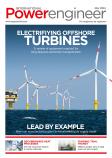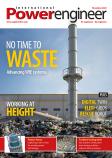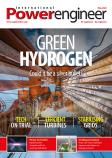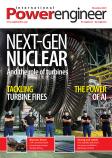
Thyssenkrupp Uhde has won a new contract from its customer and QatarEnergy affiliate, Qatar Fertiliser Company (QAFCO), for the engineering, procurement, construction and commissioning of a world-scale ammonia plant, capable of producing its full output as Blue Ammonia.
The plant is planned to be completed by the first quarter of 2026 as part of a project spearheaded by a consortium with construction firm Consolidated Contractors Company (CCC). Thanks to thyssenkrupp’s uhde ammonia technology, the single-train plant will have a record capacity of 3,500 metric tons per day.
“Thyssenkrupp has a long-standing business relationship with Qatar, and we are delighted to sign this contract today,” said Martina Merz, CEO of thyssenkrupp. “With our proven technology and innovation expertise we are laying the foundation towards sustainable solutions jointly with our customers.”
With over 100 years of experience in engineering and building chemical plants, thyssenkrupp has constructed around 130 ammonia plants, some of which are the largest plants worldwide. The firm’s uhde dual pressure synthesis technology enables ammonia plants to produce very large capacities of 3,300 mtpd using tried and tested equipment.
“The ongoing trust of our esteemed customer clearly shows that we can deliver solutions for the rising demand in clean ammonia, be it blue or green, be it as fertilizer or as transport medium for hydrogen,” added Dr. Cord Landsmann, CEO of thyssenkrupp. “With our well-proven uhde dual pressure technology, clean ammonia can be produced in large quantities and we are very proud to be QatarEnergy’s and QAFCO’s partner in this lighthouse project. We are ready for the green transformation.”
Besides the fertilizer industry, thyssenkrupp is also targeting the clean energy market with its clean ammonia technologies such as ammonia storage and ammonia cracking. In the fertilizer industry, thyssenkrupp deploys slow-release technologies such as urease inhibitors or environmentally-friendly PLA coatings to help meet the required emission standards.
Meanwhile, the firm’s scrubbing units or ammonia convert technology (ACT) in its UFT Fluid Bed Urea Granulation technology minimise dust and ammonia emissions, and its EnviNox reactors in nitric acid plants enable a nearly complete removal of NOx and N2O emissions.
















